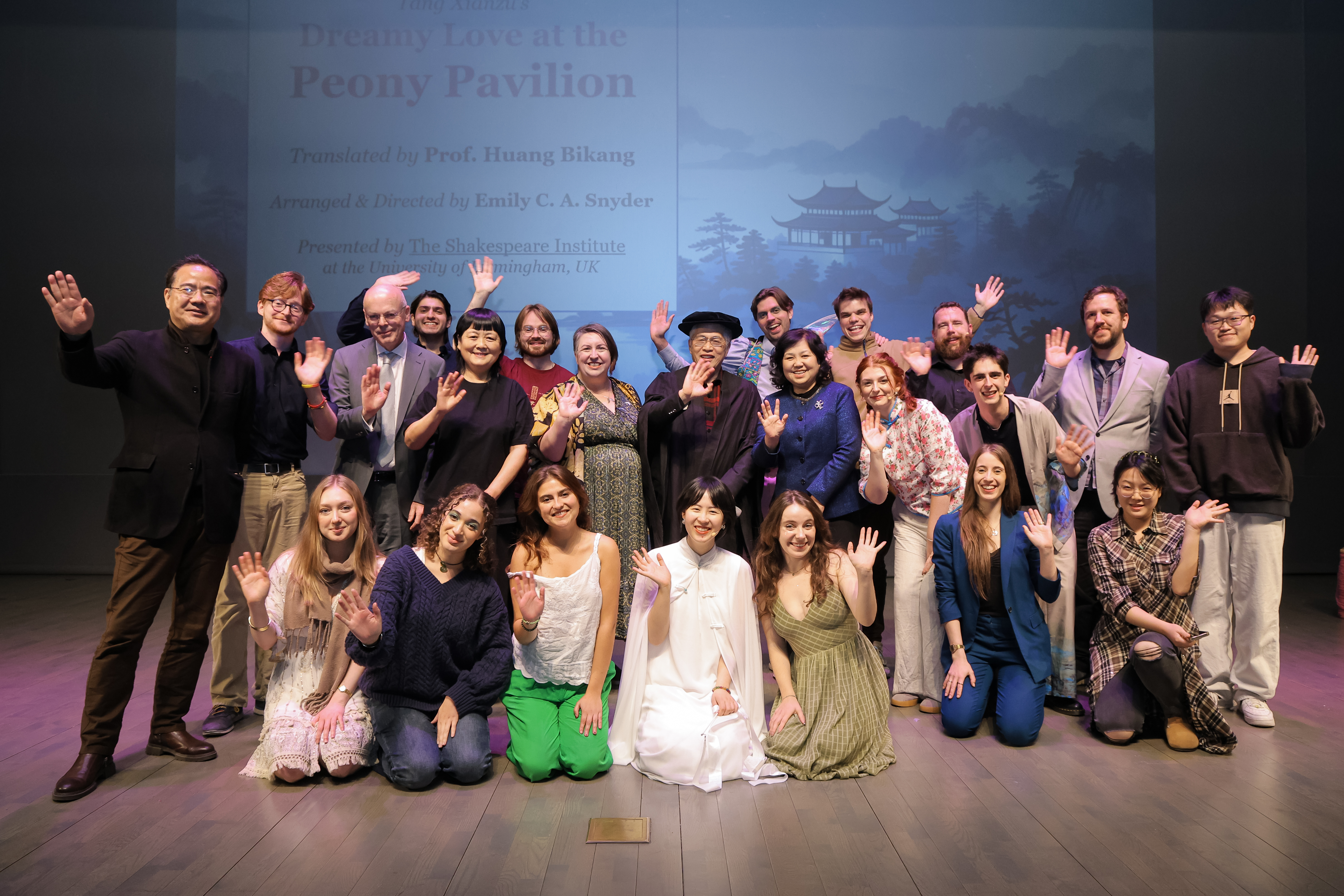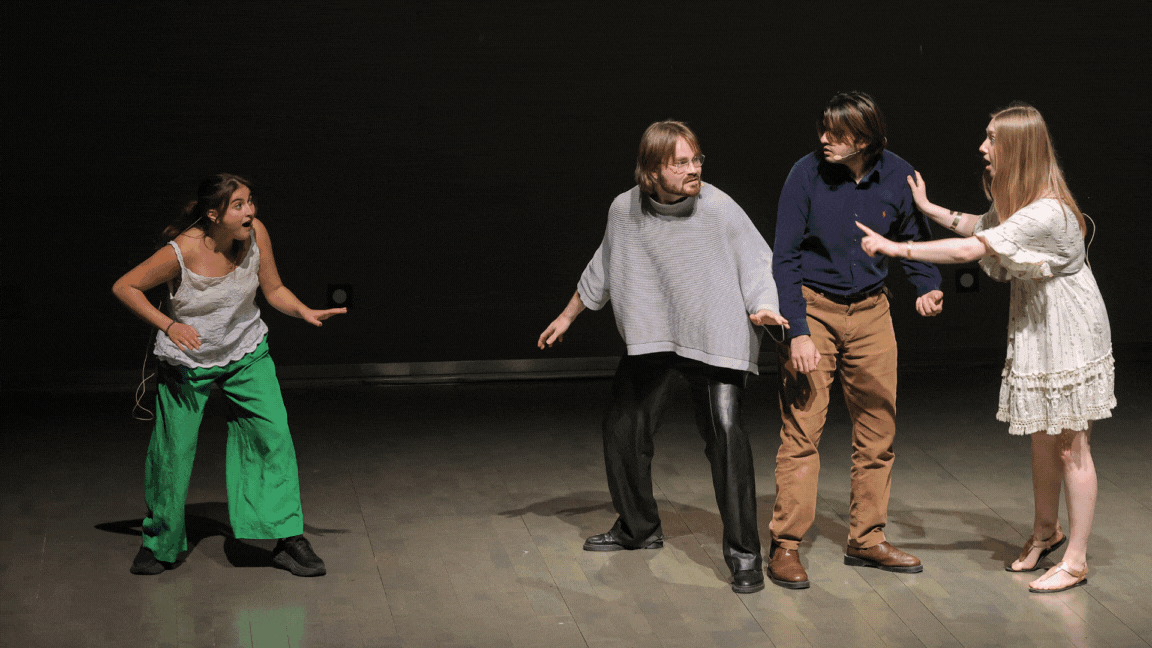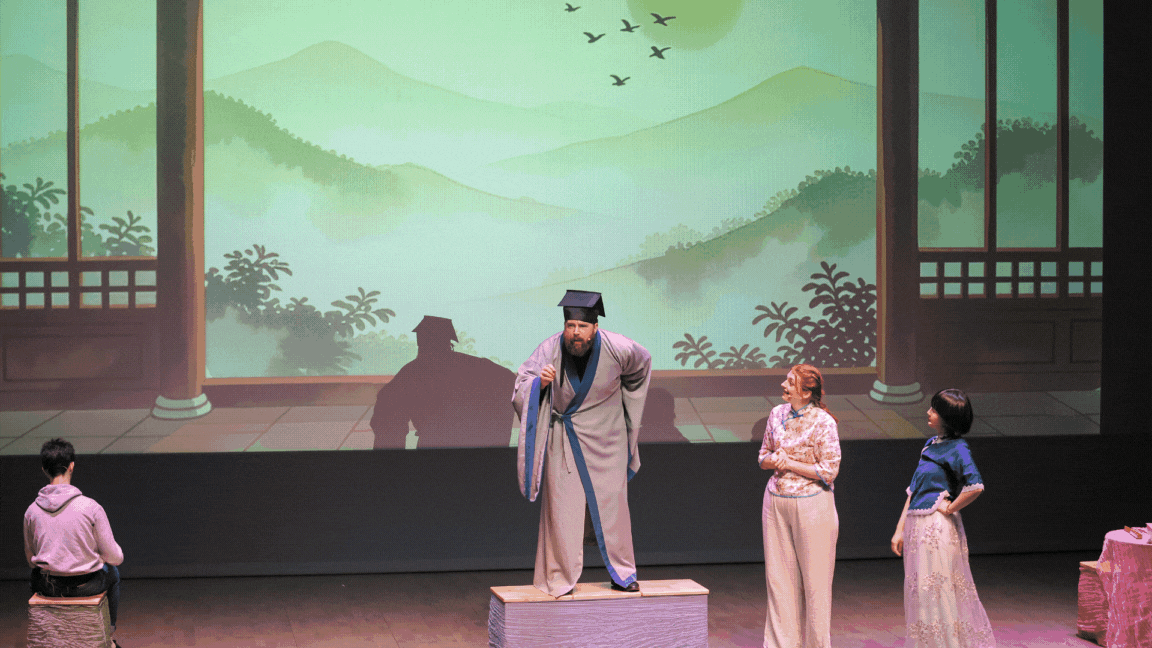
Group photo of the cast and team from A Midsummer Night’s Dream and The Peony Pavilion
Peking University, October 29, 2025: Cultures from the East and West sometimes may seem sharply at odds, but at other times evoke a strikingly similar emotional resonance that underscores our shared humanity. This cultural phenomenon was celebrated creatively in the evening of October 27 at PKU Hall.
In a novel fusion of theatrical styles, the PKU Yenching Academy seamlessly melded two historical plays conceived a world apart into one stunning stage performance, celebrating the immortal legacy of William Shakespear and Tang Xianzu, two contemporaneous playwrights (died in the same year, 1616) who both left a lasting impact on literature, albeit in different languages and on different continents.
The two plays performed were Shakespear’s
A Midsummer Night’s Dream and Tang’s
The Peony Pavilion. Besides written in similar times (the former in 1595 and the latter in 1598), both plays explore similar themes of unrequited love, defiance of social norms, courage, and the supernatural.

Stills from Shakespeare’s A Midsummer Night’s Dream
Liu Mengmei, under Tang’s brush pen, is a brave man who revives from the grave his true love, Du Liniang, who has previously died pining for him. Unable to convince Du’s father of their relationship, Liu is thrown into prison for being a grave robber. However, he narrowly escapes death by proving himself a great scholar through the imperial examination and finally reunites with Du Liniang.
Du and Liu’s tortuous love affair echoes the story of Lysander, Hermia, Demetrius, and Helena. Inside this Shakespearean tragicomic world, the four Athenians run into a magic forest only to have Puck the fairy mistakenly make both of the boys fall in love with the same girl. However, the plot ends happily with the lovers rightfully reunited with each other, their spells lifted by the fairy after a peculiar succession of events.
Both plays are constructed around a dream narrative that explores human nature beyond the social and political constraints of the feudal system of the time. They champion true love and humanity over hierarchy and authority, a defiant spirit aptly captured by a quote from the Shakespearean play: “Love looks not with the eyes, but with the mind; and therefore is winged Cupid painted blind.”

Stills from Tang Xianzu’s The Peony Pavilion
The student performers from Yenching Academy perfectly captured the emotional nuances in the fantasy stories with skilled acting. The melodious verses and delicate Kunqu-inspired gestures brought to life the haunting beauty of Du Liniang’s dream as well as Shakespear’s magic forest.
“This time, we wanted to make the most of this opportunity by giving the actors more freedom to explore and offer something that can’t be seen in a regular theatre,” said Luca Bustani Wood, director of
A Midsummer Night’s Dream and a Yenching Academy Scholar, when talking about the play’s adaptation from an earlier version performed in May. “We wanted to focus on the characters. Let the actors transport the audience into the forest.”
Huang Bikang, professor at PKU School of Foreign Languages and translator of
The Peony Pavillion, said he had found many similarities between Tang and Shakspear. “Both would agree that we are all players.” Having read Shakespeare for many years, he had infused the translation with a Shakespearean style of English, keeping intact the quaint appeal of the ancient Chinese text.
He then expressed his gratitude for the cast, many of whom had travel from afar for this performance for a passion to keep alive timeless stories.
Reported and Written by: Akaash Babar, Nicole Ang
Edited by: Chen Shizhuo
Photo by: Song Boning


